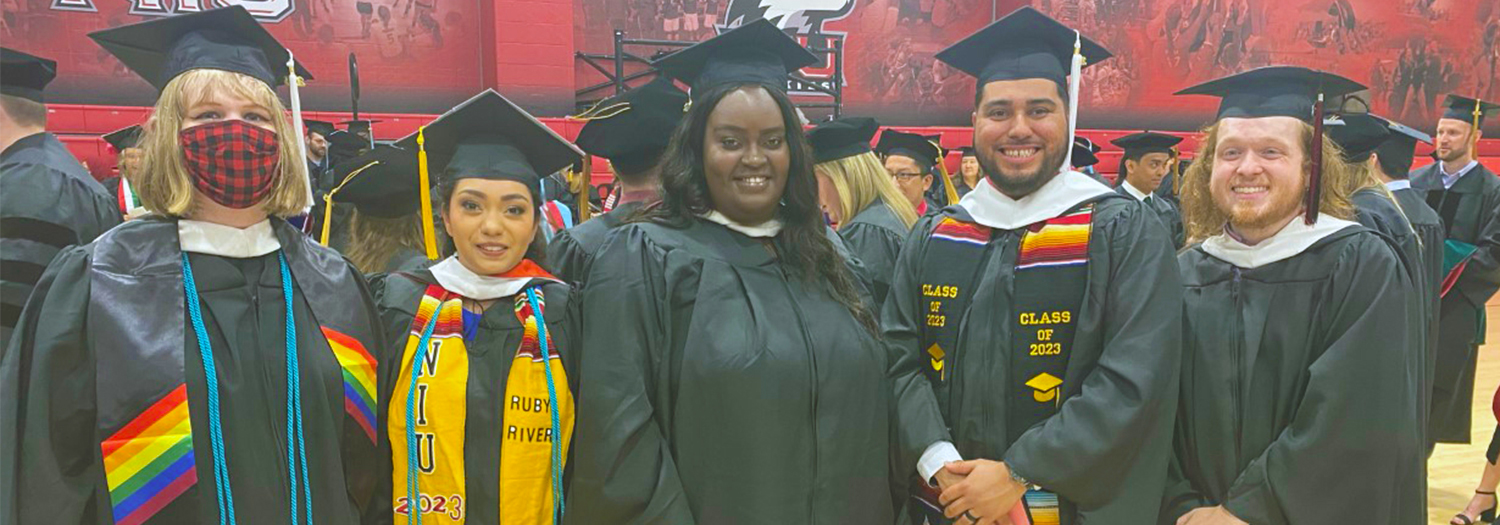- Department of Sociology and Criminology
- Academics
- Graduate Program
Graduate Program

Sociology Master’s Program
We offer graduate courses and research opportunities leading to a master of art’s degree with a thesis or internship capstone option. Coursework can either be in general sociology or a criminology specialization path. Competitive graduate assistantships are available. Our degree program is designed to prepare you for teaching and research in sociology, for positions in public and private agencies or for advanced study leading to the Ph.D.
Courses For the Program
A minimum of 33 semester hours of credit is necessary (including six semester hours for the thesis or internship). You must maintain an overall GPA of 3.0 or higher. No more than 12 semester hours in 500-level graduate courses may be included in your program for the master's degree. Find more information about a pathway to the degree.
Thesis
Evidence of mastery in the area of substantive specialization comes from their thesis, with close faculty supervision. A thesis is intended to provide the student with the opportunity to grapple with a significant sociological problem. You will pose meaningful questions and systematically marshal a body of evidence to address these questions. A successful defense satisfies the comprehensive exam requirement.
Internship
This non-thesis path to the M.A. provides substantial field experience, requiring at least 240 hours of work at an internship site (120 hours is the equivalent of three credit hours). The graduate committee supervises the internship. A brief proposal of the your internship project must be submitted and you must successfully pass the written comprehensive exams before starting internship hours. Upon completion of internship hours, students submit a final paper on their internship experience to the graduate committee for evaluation.
Admissions Process
Students seeking admission to the M.A. program in the sociology department must meet all the requirements for admission to the Graduate School. In addition to the standard requirements for graduate admission to the Graduate School at NIU, the sociology M.A. program requires degree-seeking applicants to submit the following materials:
- Baccalaureate field: A B.S./B.A. from sociology, a minor in sociology or a related field is required. Coursework in sociological theory and methods is required. Students without the course requirements in theory and methods will be advised by the graduate advisor on how to obtain these before enrollment.
- Unofficial transcripts: A B.S./B.A. transcript is required by the Graduate School. International students should review additional information about transcripts.
- Grade point average: At least 3.0/4.0 cumulative GPA (or equivalent) is required.
- Official test scores: Graduate Record Examination (GRE) not required for admission. International students should review additional information about test scores.
- Letters of recommendation: Two letters of recommendation from individuals who can speak to your ability to be successful in the completion of a graduate-level degree program. The individuals who submit a letter for you should be individuals who have an academic relationship with you.
- Personal statement: Your personal statement should outline your preparation for graduate study in your chosen field, as well as your goals for graduate school and beyond. In the statement, also explain why you believe the sociology program at NIU can best help you meet your goals.
- Resume/CV: Copy of current resume/CV in a PDF format indicating your professional or volunteer experience is optional.
- Visit: We offer campus visits for those unfamiliar with the NIU campus and area.
Deadlines: Applications are accepted only for the fall semester (August) enrollment. Priority consideration for funding is Feb. 1. If funding is not required, application dates are May 1 for international students living abroad and July 1 for applicants residing in the U.S.
Funding: We offer competitive graduate assistantships to students accepted into the program. The GA includes a stipend for the academic year and a tuition waiver (excluding student fees). Additional information on costs and funding can be found on the Graduate School website.
Related Links
- Sociology teaching certificate
- Graduate assistantships
- NIU Graduate School
- NIU International Graduate Student Admissions
Meet Our Alumni
Ophra Leyser-Whalen, M.A. '99
- Associate professor, sociology and anthropology, University of Texas at El Paso.
- Recipient of the 2020 Feminist Scholar Activist Award (American Sociological Association).
- Research interests: infertility, sterilization, contraception, abortion and related issues.
Melissa Creamer, M.A. '10
- Community action assistant director, Kendall County Health Department.
- Supervises case managers and interns, manages grants, and conducts research, surveys and interviews.
- Promotes cultural competency among employees and clients.